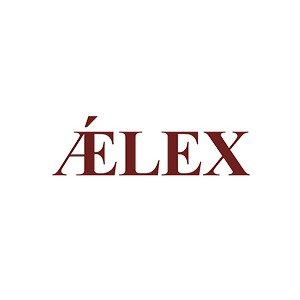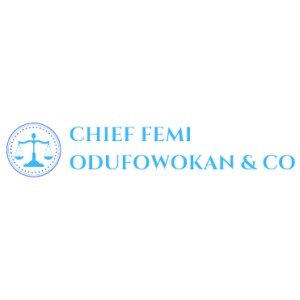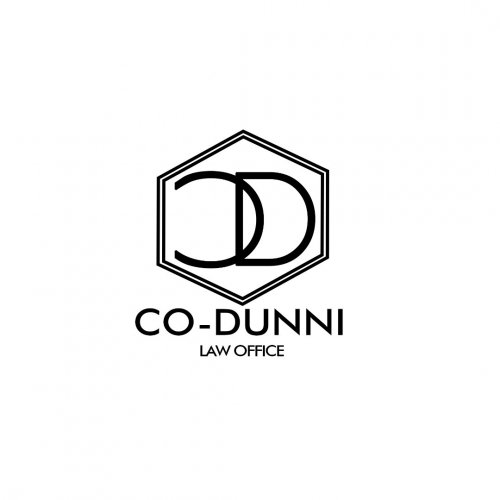Best Property Insurance Lawyers in Lagos
Share your needs with us, get contacted by law firms.
Free. Takes 2 min.
List of the best lawyers in Lagos, Nigeria
Legal guides written by Adeola Oyinlade & Co:
- Procedure and Requirements for Work Permit and Visas in Nigeria
- The Step-By-Step Procedure of How to Apply for Microfinance Bank License Online in Nigeria
- How to Ensure the Smooth Recognition and Enforcement of Foreign Judgments in Nigeria
About Property Insurance Law in Lagos, Nigeria
Property insurance in Lagos, Nigeria, is designed to offer financial protection against risks associated with owning or renting property. These risks can include damage due to fire, theft, or natural disasters like floods and storms. Insurance policies typically cover the structure of the property and may also encompass additional items within the premises. The regulatory framework for property insurance in Nigeria ensures that both insurers and policyholders operate within a clear legal context. Insurance companies are required to be registered with the National Insurance Commission (NAICOM), which monitors their operations to safeguard consumer interests.
Why You May Need a Lawyer
Hiring a lawyer can be crucial in various situations regarding property insurance. Here are a few scenarios where legal assistance might be necessary:
1. Policy Understanding: Legal counsel can help interpret complex insurance policies and ensure that all terms and conditions are clear.
2. Claims Disputes: When disputes arise, such as claim denials, delays, or insufficient payouts, legal expertise can help resolve these issues effectively.
3. Contract Review: Before signing an insurance contract, a lawyer can review the terms to protect your interests.
4. Litigation: If your claim leads to a court case, a lawyer can provide representation and guide you through the legal process.
5. Property Transfer: During buying, selling, or leasing transactions, legal advice ensures the property insurance obligations are correctly transferred.
Local Laws Overview
Lagos operates under a comprehensive legal framework for property insurance governed by both federal and state laws. Some key aspects include:
The Insurance Act (2003): This serves as the principal legislation governing insurance operations in Nigeria. It specifies licensing requisites, operational standards, and penalties for non-compliance.
The NAICOM Guidelines: These guidelines regulate the conduct of insurance companies, ensuring fair practices and consumer protection.
Land Use Act: While primarily focused on land administration, it can affect property insurance in cases of ownership disputes and transfer processes.
Understanding and complying with these laws is essential for both insurers and insured parties in Lagos to prevent legal complications during policy enforcement.
Frequently Asked Questions
1. What does property insurance cover?
Property insurance typically covers damage to the structure of a property as well as specified contents within the premises due to perils like fire, theft, and certain natural disasters.
2. Do I need property insurance in Lagos?
While not mandatory, property insurance is highly recommended to protect your investment against unforeseen risks.
3. Can I claim for all damages under my property insurance?
Claims depend on the type of coverage you have; not all damages are covered. Always review your policy limits and exclusions.
4. How are premiums calculated?
Premiums are typically based on factors such as the property's value, location, safety features, and the nature of coverage required.
5. Can my insurer refuse my claim?
Insurers can deny claims if the loss is not covered under the policy, if the policyholder violates terms, or due to fraud. Legal advice can help dispute unjust denials.
6. What should I do after a loss?
Notify your insurer immediately, document the damage, and file your claim promptly, following the procedures outlined in your policy.
7. How long does it take to settle a claim?
The time frame varies depending on the complexity of the claim and responsiveness of both parties, but insurers are generally expected to settle claims expediently.
8. What types of property insurance are available in Lagos?
Common types include homeowners insurance, renters insurance, and comprehensive property insurance covering a wider array of risks.
9. Are natural disasters covered?
Coverage for natural disasters depends on the insurance policy. Some policies include natural disaster coverage, while others exclude it.
10. How can I make sure I am fully covered?
Review your property's value, identify potential risks, and consult with an insurance expert to tailor your policy for comprehensive coverage.
Additional Resources
National Insurance Commission (NAICOM): The key regulatory body for the insurance sector in Nigeria, providing guidelines and overseeing companies' operations.
Lagos State Ministry of Physical Planning and Urban Development: Offers resources and guidelines crucial for property owners and insurance considerations.
Nigerian Insurers Association (NIA): A professional body offering industry insights and resources.
Next Steps
If you find yourself needing legal advice in the field of property insurance, consider the following steps:
1. Consult with a lawyer: Seek out a lawyer experienced in property insurance to discuss your specific situation.
2. Gather Documentation: Compile all relevant documents, including your insurance policy, claim-related paperwork, and any correspondence with your insurer.
3. Contact Regulatory Bodies: Engage with NAICOM or other relevant agencies for guidance, especially if you suspect non-compliance by your insurer.
4. Consider Mediation: In disputes, mediation may offer a quicker resolution without the need for litigation.
5. Stay Informed: Keep abreast of changes in property insurance laws that may affect your rights and obligations.
Lawzana helps you find the best lawyers and law firms in Lagos through a curated and pre-screened list of qualified legal professionals. Our platform offers rankings and detailed profiles of attorneys and law firms, allowing you to compare based on practice areas, including Property Insurance, experience, and client feedback.
Each profile includes a description of the firm's areas of practice, client reviews, team members and partners, year of establishment, spoken languages, office locations, contact information, social media presence, and any published articles or resources. Most firms on our platform speak English and are experienced in both local and international legal matters.
Get a quote from top-rated law firms in Lagos, Nigeria — quickly, securely, and without unnecessary hassle.
Disclaimer:
The information provided on this page is for general informational purposes only and does not constitute legal advice. While we strive to ensure the accuracy and relevance of the content, legal information may change over time, and interpretations of the law can vary. You should always consult with a qualified legal professional for advice specific to your situation.
We disclaim all liability for actions taken or not taken based on the content of this page. If you believe any information is incorrect or outdated, please contact us, and we will review and update it where appropriate.













